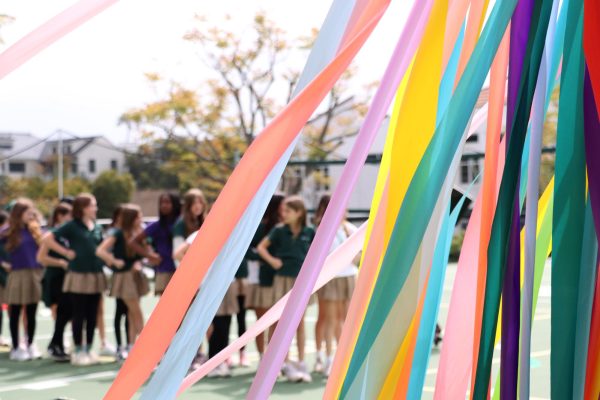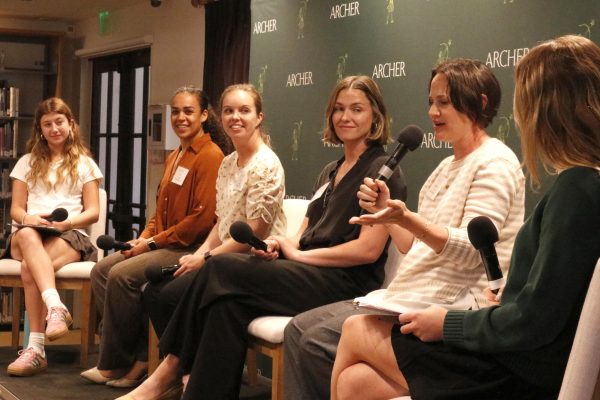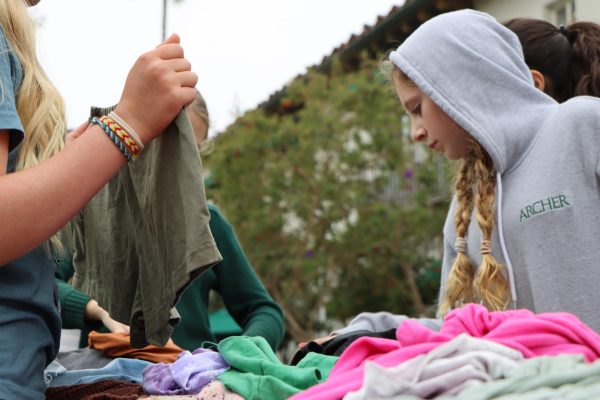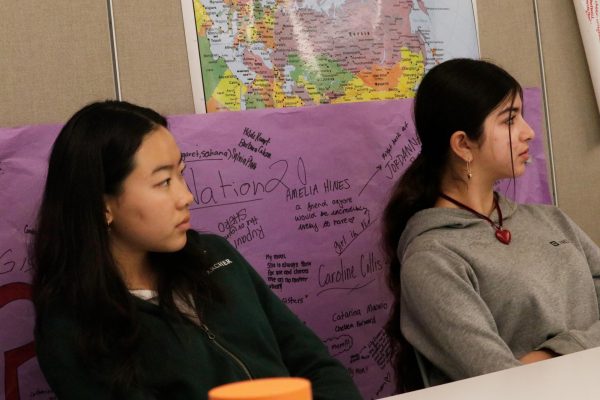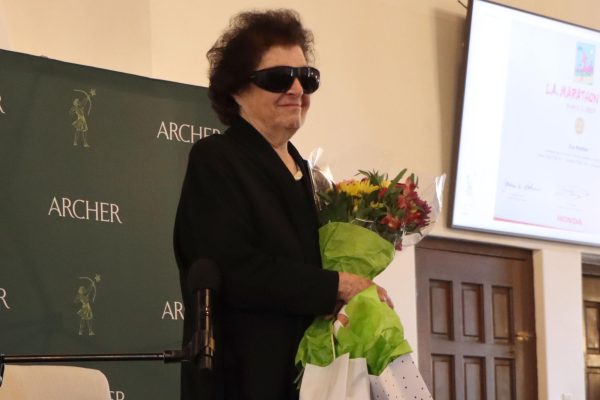#SharingStories: Highlighting lesser known clubs on campus for Scholastic Journalism Week
Photo credit: Maia Alvarez
Four members of the Chess Club think pensively about their next moves during a round of chess. Chess Club, Callighraphy Club, Stitch Perfect and Mental Health Club are all clubs on campus full of creativity, impact and community.
February 24, 2022
For the third day of Scholastic Journalism Week, student-journalists were tasked with “amplifying student voices on your campus that may not necessarily have a large platform” by the Journalism Education Association. With a myriad of clubs that take place every day at Archer, The Oracle wanted to give a platform to those who typically aren’t highlighted.
Chess Club
Sophomore Liora Ginzburg is the leader of Archer’s Chess Club. She began playing approximately four years ago and brought her passion to Archer last year. As a freshman, she ran a practicum session online for students interested in chess. This year, that practicum spurred into a club that meets twice a week and hosts students from middle and high school.
“There are quite a few people that consistently go every time which is quite sweet,” Ginzburg said. “And also, new people are always welcome to come as well … It’s also very flexible which is one of the positive things I really like about it, because I have a busy schedule, and I do multiple things after school.”
Ginzburg first started to imagine the Chess Club when she was applying to Archer. She said she asked if there was a Chess Cub on campus, and upon finding out there wasn’t, Ginzburg set out to start one. Now an Archer student, she said her club is a great way to connect with people across grade levels.
“It’s really been — especially because last year was online — a good opportunity to talk to people that are in different grades. It’s surprisingly social. If you hear chess club, your first thought might not be like this is a super social thing. But in the club itself, there’s a lot of laughter and there’s a lot of talking throughout,” Ginzburg said.
With Ginzburg’s chess background, being that she’s played for years, she spoke to the differences between Archer’s chess environment and the standard one.
“I’ve always played chess. But what I like is that it’s a very social way to play chess,” Ginzburg said. “And most girls haven’t had such a social environment for chess because it’s a male-dominated field and the boys aren’t always super friendly. So it just creates a nice warm environment, and I look forward to going because it’s fun to talk to people.”
Calligraphy Club
Sixth grader Paloma Sommer leads the Calligraphy Club, a club focused on teaching others the techniques of calligraphy. The club is open to only middle schoolers and meets on the second and fourth Wednesday of each month.
Sommer said the idea of Calligraphy Club stems from her own enjoyment of calligraphy after taking a class outside of Archer. Sommer said she loves how calligraphy is an art that’s able to be shared between different people.
“I love doing people’s names on cards and calligraphy,” Sommer said. “I really wanted to share that with people and share it with my community. So that’s why I decided to start the club.”
Since the club began in October, a goal for the Calligraphy Club has been creating weathergrams with empowering quotes written in calligraphy so that they can later be displayed. At their most recent meeting, the club hung their weathergrams on a tree on the left side of the courtyard. Sommer said she felt joyful in seeing her goal come into fruition.
“I really wanted to start a club, but I didn’t really know how at first, so I’m just very proud that it has come to what it is now and that people come and we can collaborate and be creative and have fun,” Sommer said. “What we put in the courtyard, maybe someone will walk by and it’ll make their day a little happier.”
Stitch Perfect Club
Sophomore Sabrina Walker is the leader of the Stitch Perfect club. The club focuses on creating knitted hats for premature newborn infants in the Neonatal Intensive Care Unit. What sparked her interest in creating this club was her relation to once being a premature infant and being in the NICU. Furthermore, she picked up the hobby of crocheting over the pandemic and wanted to share her newfound passion with the greater Archer community.
“I wanted to aid families who have children in hospitals, those who were hospitalized and also preemies — so children in the NICU,” Walker said. “I spent some time in the NICU when I was younger … I really wanted to find a way that I could execute my service hours in my self project and help little NICU babies and that happened to be through crochet.”
Walker said usually it takes a few months to ship the hats because for most members, they are first time learners and need guidance on how to make the hats.
“I am teaching the majority of the club the basics of crochet so that obviously takes a little bit longer,” Walker said. “But after spending free time making little hats, I ship them away to Miracle Babies.”
The club is open to all middle and upper school students who either have knowledge or no knowledge of how to crochet as everyone will be taught how. The club meetings are every other Tuesday and Walker said she hopes this semester, they can send more batches of hats to Miracle Babies.
“It takes a while, so I hope I can pick it up this semester,” Walker said. “[If] people are able to show and are showing up and we’re all able to learn, then that’d be great.”
Mental Health Club
Juniors Kennedy Schultz and Lexie Horizon are board members of the Mental Health Club at Archer, meeting every Wednesday. Schultz said that this club is a place where everyone can go and speak freely about their emotions and what they are going through. The mission statement for the club is to spread awareness about mental health, as they hope to foster open discussions and community outreach to create a more understanding and empathetic society.
“They can always meet with us privately if they have any concerns,” Schultz said. “We have talked to the heads of Archer like Ms. [Hazell]-O’Brien about how people are doing mentally, as well as trying to plan a mental health day where students can come and do face masks and just talk with one another.”
According to the CDC, “Mental health includes our emotional, psychological and social well-being. It affects how we think, feel and act. It also helps determine how we handle stress, relate to others and make healthy choices. Mental health is important at every stage of life, from childhood and adolescence through adulthood.”
For students who struggle with mental health issues, Schultz said it is important to have a space on campus where they are able to openly talk about what they’re going through.
“I feel that it is nice to talk to people you can relate to,” Schultz said. “You don’t want anyone to suffer alone and I feel that it is essential to share because that can be the first step to recovery for yourself.”
Schultz said that something she is proud of surrounding this club is how everyone can come together and have a comforting space. She said that something she feels proud of is how everyone has come together and created a bond as a club.
“In the beginning, not everybody knew what to say … but after a little while, we all found that balance, and we got to know each other more,” Schultz said. “We all trust each other in a way, and that is what makes the mental health club what it is. Having trust within a space and being able to talk about anything you’re going through is a great connection to have with everybody.”
Schultz encourages students to attend future meetings to feel better about what they are going through, and be able to know they have a support system within Archer.
“I feel like a lot of times like people suffer in silence,” Schultz said. “I encourage anyone to come to just sit and listen or to even want to feel heard, and maybe they don’t even need to talk, but just knowing that there are people there for them is what is most important.”



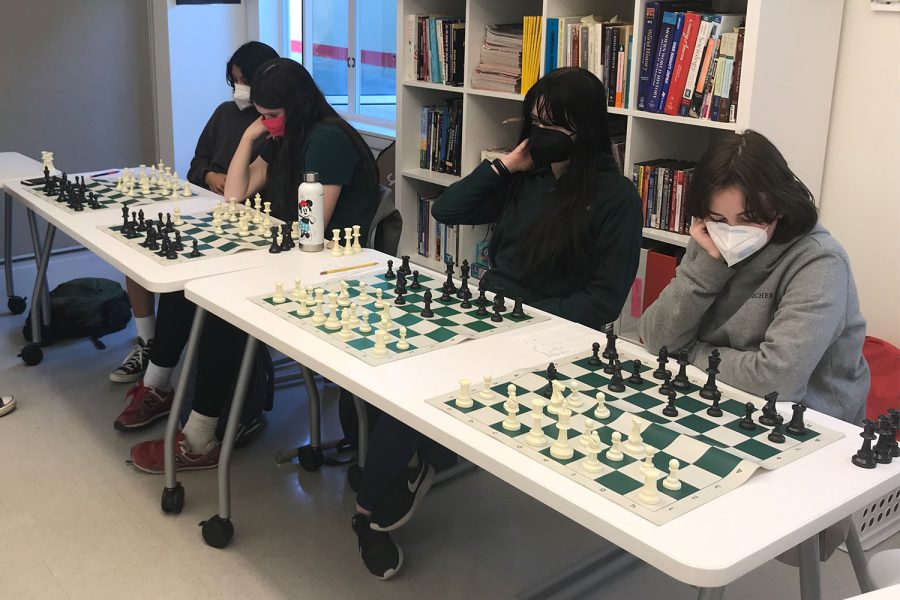
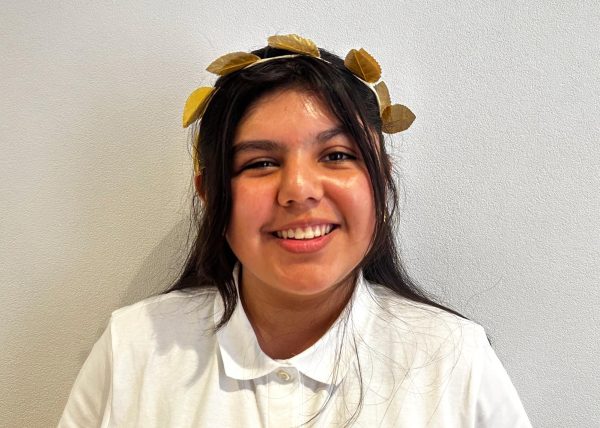
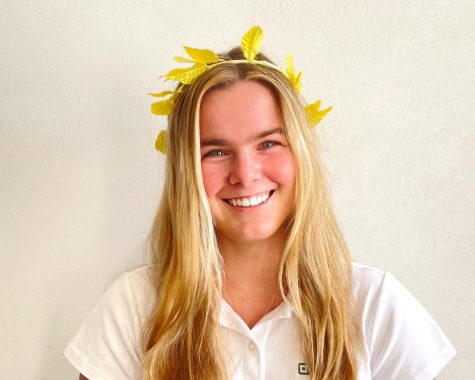

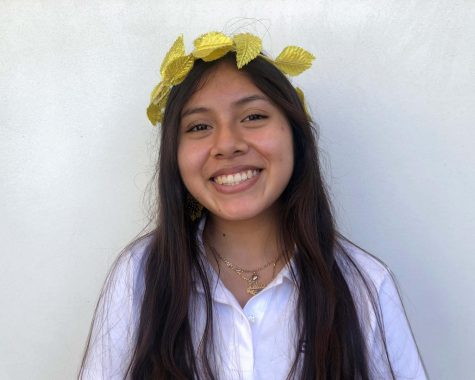





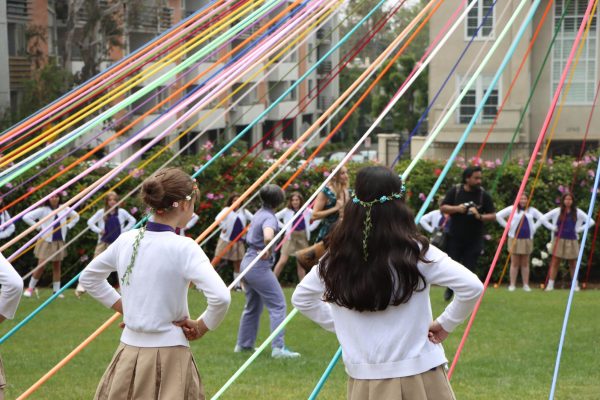
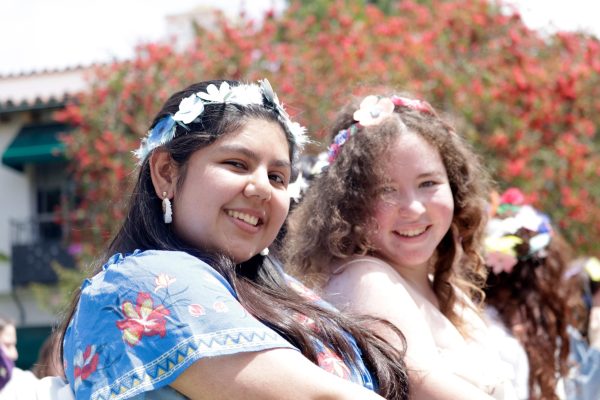
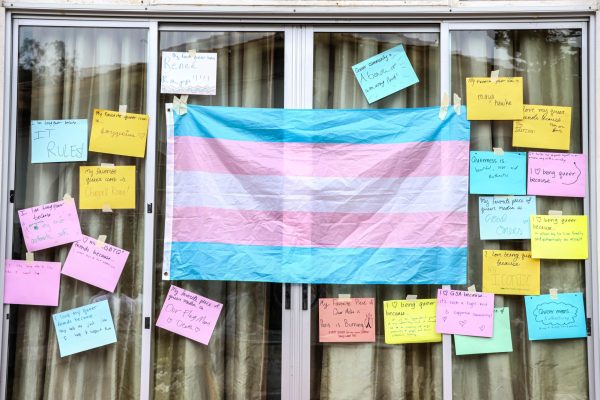
![Seniors laugh as they shoot water across the courtyard, during the annual fountain jump. I [the fountain jump] is really the culmination of your Archer experience, senior Ella Gray said. Especially because youre always around the fountain, at some point, and now you get to be in it.](https://archeroracle.org/wp-content/uploads/2024/05/MG_0817-1-600x400.jpg)

